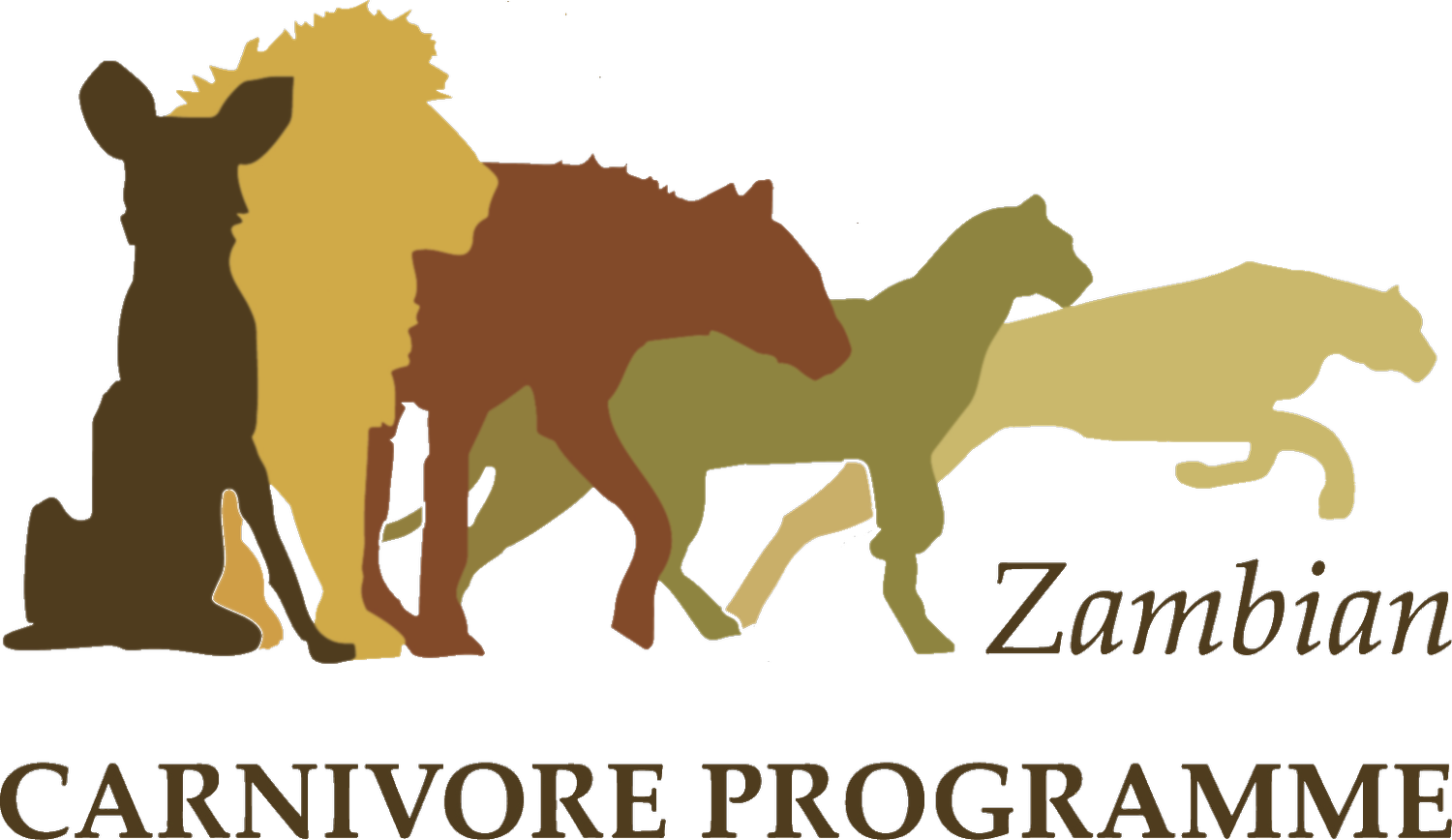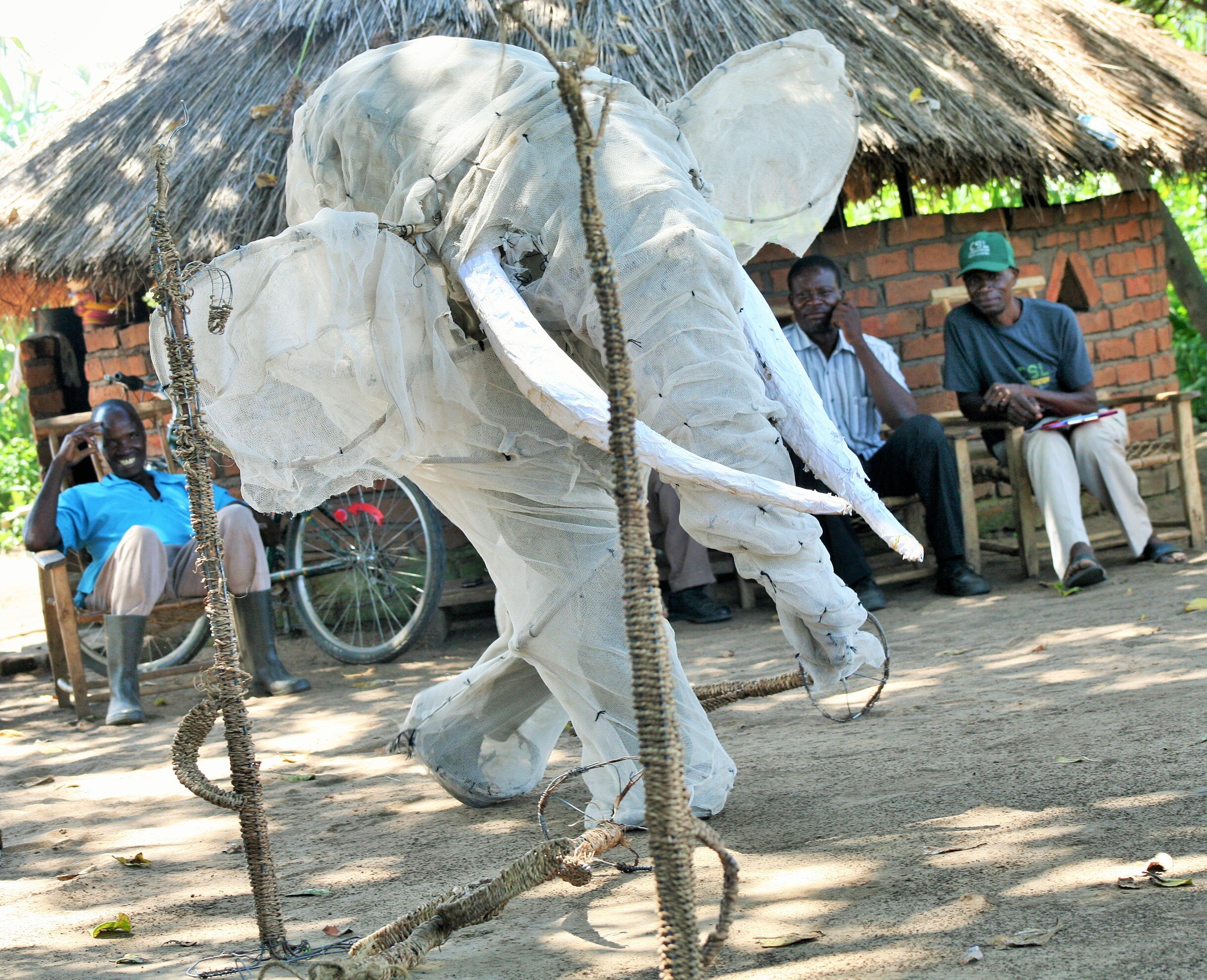Collaborative Human Wildlife Conflict Mitigation Work In The Luangwa Valley
By: Thandiwe Mweetwa (ZCP Luangwa Valley Project Manager); Emma Robinson (CSL Human Wildlife Conflict Programme Manager); Henry Mwape (ZCP Luangwa Valley Project Assistant Manager); Dennis Zimba (ZCP Luangwa Valley Project Human Carnivore Conflict Mitigation/ Research Officer)
Zambian Carnivore Programme (ZCP) Employs A Variety of Mitigation Measures to Manage Human Carnivore Conflict in the Luangwa Valley:
Lions are Africa’s ultimate apex predator and are important for proper ecosystem function. They are listed as Vulnerable on the IUCN Red List, with some populations thought to be Critically Endangered. The main threats include habitat loss, prey depletion, the illegal trade in body parts, and human-lion conflict. In eastern Zambia, the main threats have been related to wire snare poaching in the short term and habitat loss in the long term. However, in recent years, human-lion conflict has been a growing concern. The number of livestock in the area has increased and this has led to an escalation in livestock predation by lions.
Unfortunately, improper herding practices, poor boma construction, and livestock left outside overnight present an easy-to-catch prey for predators. This requires agent attention to prevent adverse retaliation on lions by irate livestock owners.
To address this problem, we collaborated with our local conservation partners to design and implement several mitigation measures. With our partners, we conducted door-to-door sensitization visits and distributed educational material on lion behavior, proper livestock care, herding practices, and carnivore identification. We visited livestock farmers to register their livestock, taught them proper husbandry practices as well as personal safety techniques in an environment that has predators.
Figure 1: Sensitisation on aversive conditioning for carnivores (Photo Credit: ZCP Zambia)
Figure 2: Teaching students about personal safety through understanding lion behaviors (Photo Credit: ZCP Zambia)
We hope these approaches will help communities better coexist with lions as mitigating conflict is key to reducing retaliation and snares. Predation reduction is a direct benefit to the community as selling livestock allows farmers to take their children to school, buy agricultural inputs, and helps reduce poverty in many families.
In the past year, our sensitization program reached 4,075 people in 4 chiefdoms on proper herding practices, personal safety, dangers of snares, and the importance of coexistence with wildlife. 44% of the bomas were improved by the farmers following sensitization visits and we take this as a positive indication that people's attitudes towards livestock rearing practices are slowly changing.
Figure 3: Meeting with local farmers to discuss boma reinforcement techniques (Photo Credit: ZCP Zambia)
Figure 4: Predator-proof piggery demo enclosure built to illustrate boma reinforcement options (Photo Credit: ZCP Zambia)
Conservation South Luangwa (CSL) Uses Humour and Dramatic Storytelling to Engage Communities in Human Elephant Conflict Conversations:
Recently reclassified from vulnerable to endangered, African savannah elephants are under increasing threat of extinction. Well-coordinated anti-poaching efforts in South Luangwa National Park Zambia in recent years have successfully reduced elephant poaching, though increasing Human-Wildlife conflict with crop-raiding elephants threatens to undo this progress with a risk of increased retaliatory killings.
Due to the Covid pandemic negatively impacting tourism workers in 2020, there’s been an increase in rural farmers growing maize near the national park. An entire year’s staple food crop can be destroyed in one night by elephants, so tensions run extremely high as the maize crop ripens ready for harvest.
Conservation South Luangwa has a variety of mitigation strategies to reduce conflict with elephants, one of these is education and sensitisation. You can’t tell an elephant what to do, but we can advise and work with farmers to help them achieve a successful harvest ensuring food security. We are grateful to the funding of the European Union through IUCN Save Our Species that has paid for 14 full-day sensitisation trips this farming season, enabling our team to reach remote rural areas where elephant conflicts are highest.
Humour and storytelling are powerful tools for sharing information; We’ve been working with a local drama group who are sharing memorable HWC mitigation messages this way. A recent drama told the story of 2 farmers, one guarding his field, and the other not. We laughed as the 2-legged elephant knocked over maize crops in an unguarded field, and were captivated by the accuracy of the actor portraying the elephant’s movements. Only too aware this is no laughing matter in real life.
Figure 5: Community watching CSL’s HEC drama (Photo Credit: CSL Zambia)
Figure 6: HEC drama on sensitization (Photo Credit: CSL Zambia)
After the performance, our Project coordinator facilitates a discussion with members of the community who gathered. Already highly engaged by the drama, he can effectively answer questions and share vital information in a way that it is welcomed and retained.
Our target was to reduce Human-Elephant conflicts by 15% in a year. However, with increasing pressure on farming blocks and more conflicts being reported thanks to a better understanding of the importance of reporting incidents meeting this target is going to be a challenge, our community work continues!
This publication was produced with the financial support of the European Union through IUCN Save Our Species. Its contents are the sole responsibility of Zambian Carnivore Programme and Conservation South Luangwa and do not necessarily reflect the views of IUCN or the European Union.






